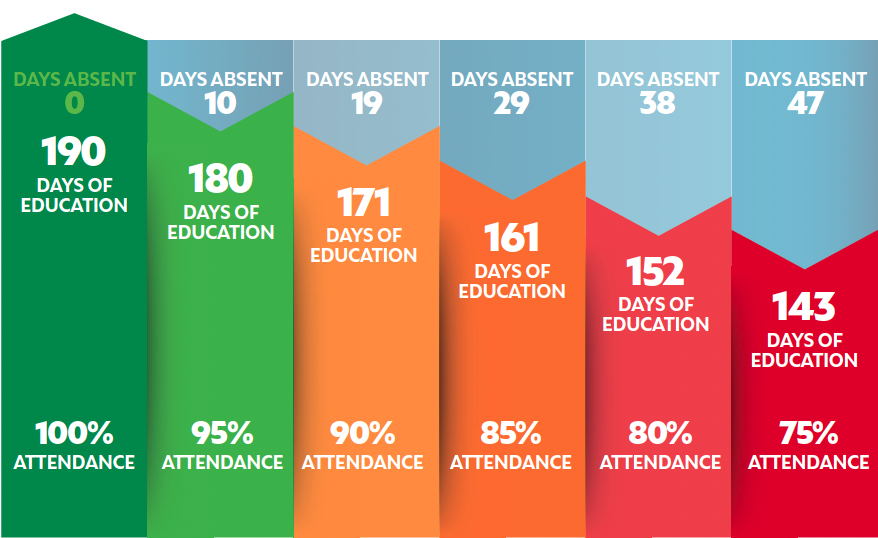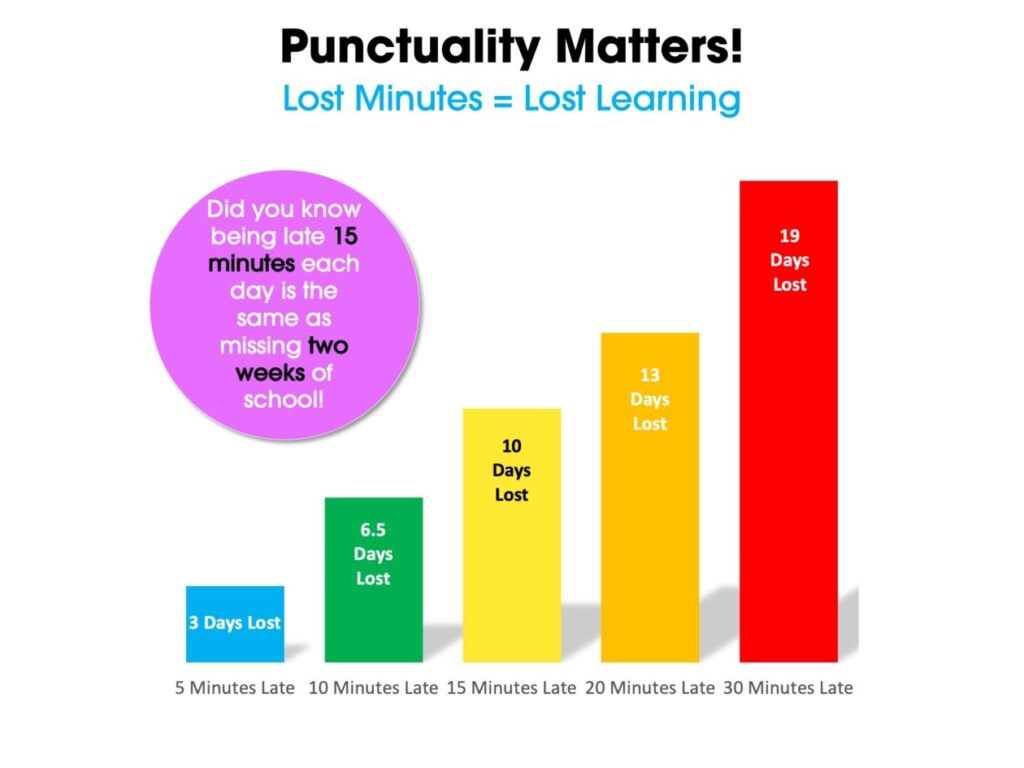Support Your Child’s Attendance Website

Attending and taking part in learning – wherever learning takes place – is fundamental to
making sure that our young people become successful learners, confident individuals, effective contributors and responsible citizens.
We know that lower levels of attendance can have an adverse impact on a young person’s level of participation, attainment and ultimately future opportunities.
As a parent you are legally responsible for making sure that your child is educated. Once you enrol your child at school the law says the child must attend school unless you, the parent, have permission from the education authority to withdraw your child.
If you know that your child will be off school, for example if they have an appointment or important meeting to attend, it is important for you to inform the school in advance.
What happens if my child is ill and can’t go to school?
You need to inform the school office by phone as early as possible on the first day your child is off school. The school may ask you if you know when your child will be back at school.
What does the school do if my child is off school?
Unless you have already contacted us to explain the absence we will try to find out why your child is off school.
We will telephone you if your child does not arrive at morning registration and may follow this up with further calls and emails through Group Call. This will continue until we know your child is safe.
Attendance letters
If your child’s attendance becomes a concern, you will receive a letter and an invitation to a meeting to discuss how to improve attendance. If the situation does not improve, support from wider agencies such as Social Work and the Attendance Officer may be requested.

Being late reduces your child’s learning time. There is an enormous amount of published material on the benefits of being punctual, especially for school, and also relating to the implications of being late
Being on time (supported by published material):
- Helps young people to be organised;
- Helps to build children’s confidence;
- Reduces stress and anxiety;
- Maintains and improves academic achievement;
- Helps young people to maintain their routine and focus;
- Enables children and adults to start the day settled, ready and relaxed;
- Is a sign of respect (one of CDPS’s school values);
- Allows others (including school staff) to use their time wisely and efficiently.
Impact on pupils who are late
Unfortunately, but understandably, there are a number of negative consequences for pupils who arrive late to school:
- Arriving late can cause some pupils to feel very anxious as they go into the classroom by themselves once everyone else is settled, calm and working.
- Key learning time will be missed. Staff may have also planned to work with a child in an intervention group during registration time, but who is late, meaning there is a knock on effect with respect to time being wasted.
- Lunch choice options have to be rushed. In class, the children will have more time to consider what they want while the register is being taken.
- Pupils may miss the all-important start of the first lesson. Without question, class teachers will then repeat their delivery to the late pupil which inevitably interrupts the flow of the lesson and the teacher’s aims and ambitions for other individuals.
Helpful tips and guidance to improve punctuality
- Be aware that on rainy days, there will be more traffic on the roads delaying journey times. Consider leaving the house 10-15 minutes earlier on these days.
- If children are oversleeping or getting up late, try putting them to bed an hour earlier each night for a week. Reduce screen time before bedtime by up to an hour.
- In terms of the recommended hours of sleep for young children, 3-5 year olds should be getting 10-13 hours each night and 6-12 year olds should be getting 9-12 hours each night (as recommended by Great Ormond Street Children’s Hospital)
- Uniforms, lunches, homework and bags could be organised the previous evening to save time in the morning.
- Establish morning routines to help children know what to do and in which order. This enables them to become more independent too. Visual prompts can help.
- Provide a motivation for leaving the house early in the mornings, e.g. scoot or cycle, walking with friends and family, etc.


